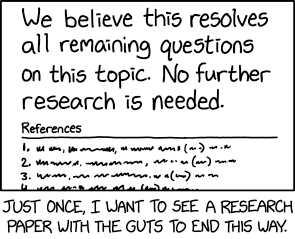Take a photo of a barcode or cover
challenging
slow-paced
I've never understood so little of any book. I imagine my rating might have been higher had I understood it better. The Tractatus Logico-Philosophicus (which someone said sounds like a spell from Harry Potter) is the only book Wittgenstein published in his lifetime. In it he seems to say something about how language works and the boundaries of what can be said. His own summary of the work is this: "What can be said at all can be said clearly; and whereof we cannot speak thereof one must be silent" (27). He suggests that so much of the confusion of philosophy is the result of men and women attempting to say the things which quite literally cannot be said and so devolving into the sort of nonsense contained in questions like, "What does the color 9 smell like?" It seems then that Wittgenstein thinks that we can say very little truthfully. But he also seems to say that the things worth saying anything about are the very things whereof we cannot speak. So his Tractatus ends with a few brief words on mysticism. "There is indeed the inexpressible. This shows itself; it is the mystical" (107). This inexpressible is the thing philosophy tries to address but (according to him) should leave alone. Wittgenstein conceives of the purpose of philosophy as being to show the nonsense of most (all?) philosophy. He concludes then that if we have followed the argument this far, "climbed out through them, on them, over them", we must now throw away the ladder and be silent. Now on to The Blue and Brown Books.
So I guess truth tables are pretty cool. The proposed notation method confuses me, and the problems that Tractatus was meant to solve themselves aren't entirely clear to me. I'll definitely have to reread this later.
Wasn't what I was expecting and I don't think I grasped the significance of it because it seemed insubstantial and mostly insignificant to me.
Very interesting, even though I found parts of it difficult to understand and parts of what I did understand difficult to agree with. I like the idea that the book's central argument is essentially self-refuting, and that Wittgenstein admits as much.
I prefer his later work to Tractatus. There are too many places he makes leaps, such as his self-evident definition of what a thought is. Still, it's interesting as an artifact, and was influential. It particularly reminds me of programming in logic languages or even functional languages used for simulations. It also touches on many interesting dilemmas.

I was reminded of that XKCD comic while reading the preface, in which Wittgenstein declares:
"...the truth of the thoughts communicated here seems to me unassailable and definitive. I am, therefore, of the opinion that the problems have in essentials been finally solved."
In fact the SEP states that for several years after publishing the book he was "divorced from philosophy (having, to his mind, solved all philosophical problems in the Tractatus), gave away his part of his family’s fortune and pursued several ‘professions’ (gardener, teacher, architect, etc.) in and around Vienna."
He sounds like quite an interesting fellow. To what extent the book actually succeeds at its lofty aim is difficult for me to assess since I couldn’t very often tell what it was saying. This should probably be read alongside, or after, a commentary. The general point seems to be that only statements about the natural world - scientific statements - are meaningful, and stuff like ethics and metaphysics is either meaningless or belongs to a mystical domain we cannot meaningfully discuss. Why one should believe that - even if we overlook the issue, alluded to in the book, that that claim would itself seem to be meaningless by its own standard - is unclear to me.
challenging
informative
mysterious
reflective
Beautiful book. That said, I maybe understood about half of what Ludwig was getting at. Even if you do not scrupulously examine and tussle over every logical/mathematical proposition (many of which are simply beyond the immediate reach of a layman), Wittgenstein clarifies his points with plainly-spoken elucidations throughout. It is a very difficult but rewarding read that heroically tries to eliminate literally every problem that can be described as purely philosophical.
"The solution of the problem of life is seen in the vanishing of this problem. (Is not this the reason why men to whom after long doubting the sense of life became clear, could not then say wherein this sense consisted?)"
"The solution of the problem of life is seen in the vanishing of this problem. (Is not this the reason why men to whom after long doubting the sense of life became clear, could not then say wherein this sense consisted?)"
Ongelooflijk, hoe krijg je het bedacht, hoe krijg je het uitgeschreven, Ludwig je was een opper mierenneuker met engelen geduld.
As a dyed-in-the-wool continental man I have a dim view of the analytic tradition or their spiritual descendants like logical positivism. To me, the whole tradition is too rooted in the hubris of scholasticism to be taken seriously. I've approached the Tractatus with that mindset and unfortunately I wouldn't say reading this book, which purports to solve all the problems of philosophy, has changed my perception. This stuff is just not for me. On the positive side, there are interesting resonances between Heidegger and Wittgenstein on the limits of language and propositional truth in this little book, which is worth the price of admission alone. Definitely worth a read for its influence but I'm more interested in the later Wittgenstein, who ultimately rejected this project.


